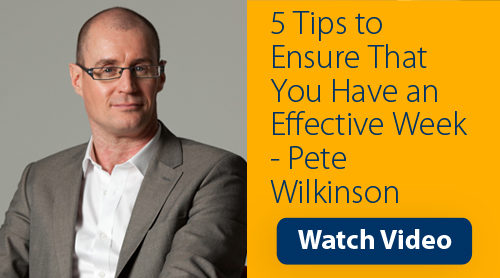
How many hours have you worked this week? 40 hours? 60 hours? Rather not think about just how many hours?
Nearly a third of UK professionals are now working 50 or more hours each week, up from 19% in 2011. And, despite this extra time put in, only 21% of survey respondents said they received formal overtime.
But, actually, the number of hours you spend at the office isn’t the important metric here. What really counts are your achievements during these hours. Think about it this way, if you’re at the office for 8 hours a day, how much of that time are you actively working on the tasks and projects that you’ve decided are your business priorities? How many of those hours can you confidently say are completely productive? Or, do you find you get distracted? Emails come in, the phone keeps ringing and your sales director wants some support on a big new contract.
It’s very easy to get distracted by the new and the immediate. When your team is looking to you, your natural instinct is to step in and help where you can. Sometimes though, this isn’t the best approach for the business. Sometimes you need to step back and focus on your priorities. Sometimes you need to say, ‘Yes I can help. But I need to finish what I’m working on first’. If you’re always working on what is right in front of you means that you could be missing what is up ahead.
There is also the temptation to fill your day with activities that feel like work. How often have you looked at your email, only to find your inbox is full? How often have you spent days in drawn out meetings and calls, with no respite in between? Not only are these scenarios disheartening, they also prevent you from making progress and focusing on your business priorities.
So what can you do to manage this situation? How can you make the shift from putting in the hours to making the time you spend in the office work for you?
Identify your distractions
If you don’t already keep an activity log or timesheet, start one for a week. This will help you to identify how you are spending your time and discover the choke points. Maybe you’re dropping everything to go help a colleague prep a proposal? Or perhaps you’re reacting immediately to a customer’s email, even though it isn’t urgent.Cut out your distractions
Now you know your distractions, you need to do something about them. While it’s unrealistic to be able to cut all meetings from your workweek, you can block out time in your diary where you’re unavailable for meetings. Or, if you’re overwhelmed by constant email, you can set time (perhaps an hour in the morning and an hour in the afternoon) to work through them. Then, the rest of your day becomes an email free time.Start each week with a personal project list
Write a list with what you want to achieve this week. It needs to be personal to you. Focus on the priorities that you want to work on for the business. Be strict with yourself about what you include in your list. The list should be for the stuff that normally gets put to one side and overlooked because something else is more important or more pressing.Importantly, each task needs to be achievable during that workweek. If it looks like something will need more time, break it down into sub-tasks and add the sub-tasks to your list. To start with, aim to have up to 10 tasks on your personal project list.
It might mean changing the way that you work. But imagine the feeling of getting to the end of the week and knowing that you could cross each of those items off your list?
Allow yourself time to work on your business priorities
Having a list with tasks to do is one thing, but allowing yourself the time to work on these tasks is the only way you’re going to achieve them. This might mean you block out time in your calendar or leave the office for an afternoon each week.
Instead of focusing on how many hours you are in the office each week, focus on what you have achieved while you’re there. It means sometimes having to say no to colleagues. It requires self-discipline not to jump from task-to-task. But, it also means giving yourself the time and the space to step back and start to work on what you want to accomplish.
None of this is easy. But, as Seth Godin said, ‘focusing means acknowledging that you just signed up for the hard part’
Do you have any tips that you use to make your day to day even more effective? Please share your thoughts and comment below.
In my Vistage Group, I find sharing my knowledge and experiences really are the most powerful tools for my groups personal development. We listen and learn from each other and it opens up our ideas and always challenges my expectations.
Our gift to you...
Apply now for your personal leadership consultation with a Vistage Chair. They'll help you assess areas of strength of your business and identify areas of potential growth.


